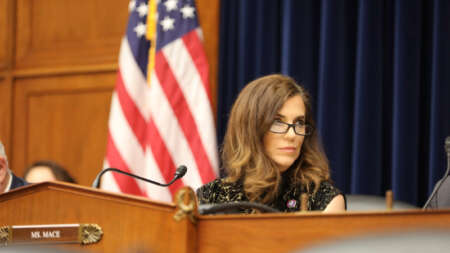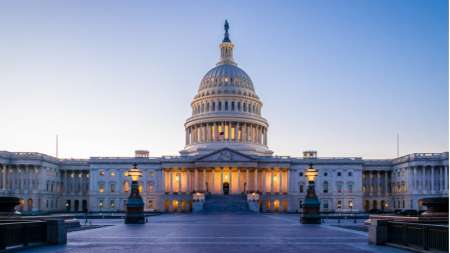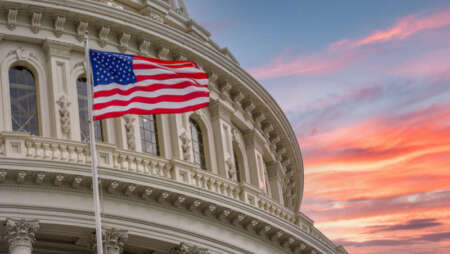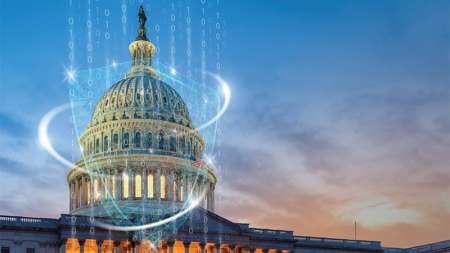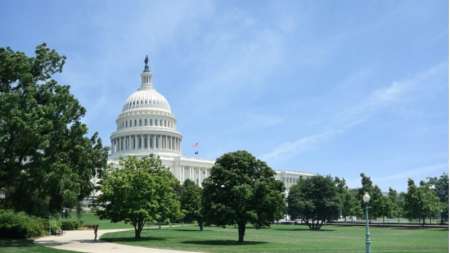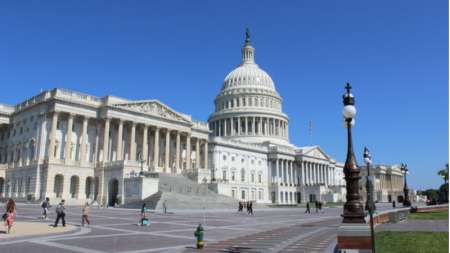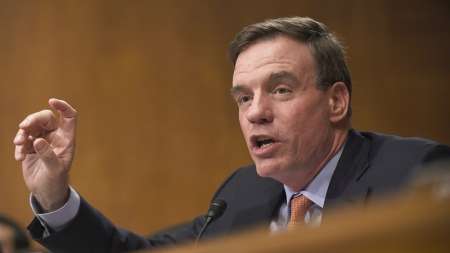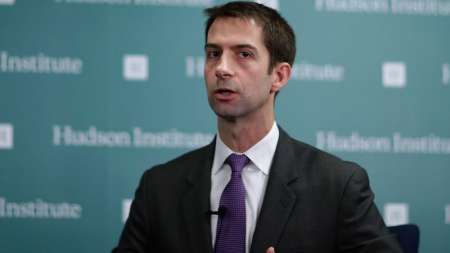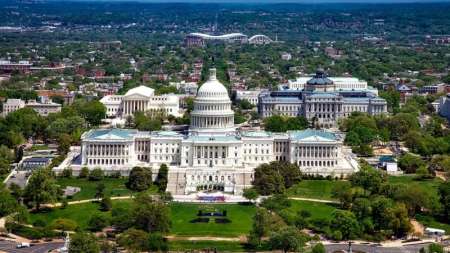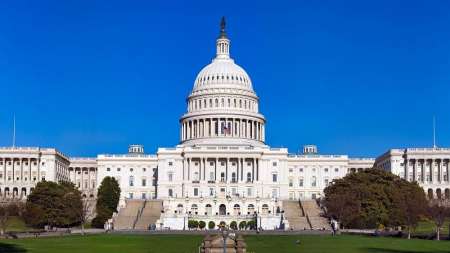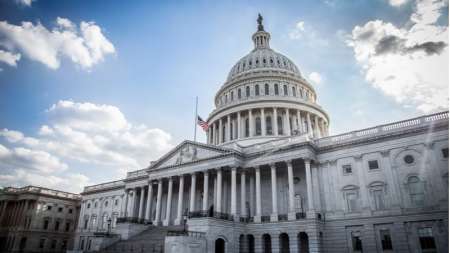Rep. Nancy Mace, R-S.C., reintroduced a bill on Thursday that would direct the Department of Veterans Affairs (VA) to use blockchain technology to improve how veterans receive their benefits and services. […]
President Donald Trump signed a massive reconciliation package into law on Friday that features several cyber and AI-related provisions, including those aimed at bolstering the Pentagon’s tech capabilities, building up rural healthcare systems, and adding more tools for monitoring the country’s borders. […]
Now that the Senate has pushed its version of reconciliation funding over the finish line amid a blizzard of changes to the bill, here’s a look at a few workforce and tech items that either failed to make the final version of the legislation, or were beaten back on the funding front during the process. […]
The U.S. Senate voted early Tuesday morning to drop from its reconciliation legislation a controversial 10-year moratorium on state regulation of artificial intelligence tech after the proposed ban met significant bipartisan pushback. […]
Bipartisan legislation introduced in the House aims to push Federal agencies to adopt electronic tools that simplify how Americans access help from the government. […]
Reps. Eric Burlison, R-Mo., and Suhas Subramanyam, D-Va., reintroduced the Federal Improvement in Technology (FIT) Procurement Act on Wednesday in an effort to streamline the Federal procurement process for agencies and their contractors. […]
A bipartisan group of lawmakers introduced a bill during a congressional hearing today that would prevent Federal agencies from buying or using artificial intelligence models created by companies with ties to the Chinese Communist Party (CCP) and other foreign adversaries. […]
A proposed task force on artificial intelligence led by Federal agency leaders would work to eliminate deep fake-powered identity theft and fraud under new legislation introduced in the Senate. […]
A bipartisan bill aimed at strengthening U.S. cryptography research and accelerating the deployment of quantum-resistant encryption cleared the House Science, Space, and Technology Committee last week. The bill now heads to the full House for further consideration. […]
A bipartisan group of lawmakers introduced legislation on June 12 that would direct the National Security Agency (NSA) to create an artificial intelligence playbook to help safeguard American AI systems from foreign espionage and cyberattacks. […]
A bipartisan duo of Senate leaders reintroduced legislation on June 5 that aims to codify the right of Federal government employees to appeal the revocation or denial of a security clearance. […]
A group of Senate Democrats wants to direct an audit of Social Security Administration (SSA) networks and systems accessed by the Department of Government Efficiency (DOGE) to identify whether vulnerabilities were left behind from that access. […]
A small but significant slice of lawmakers – including several Republican members of the House and Senate – are getting cold feet over supporting the Trump administration’s reconciliation funding bill because it includes a House-approved provision that would impose a 10-year moratorium on state-level artificial intelligence regulation. […]
A bipartisan group of senators has reintroduced legislation that aims to streamline software purchasing across the Federal government with a goal of reducing unnecessary costs. […]
Bipartisan legislation that would establish an interagency committee to harmonize cybersecurity regulations is getting a second attempt at being signed into law after two senators reintroduced the bill on May 22. […]
Sens. Mark Warner, D-Va., and James Lankford, R-Okla., on May 23 reintroduced the Federal Contractor Cybersecurity Vulnerability Reduction Act, a bill that would require Federal government contractors to implement vulnerability disclosure policies (VDPs). […]
Rep. Jen Kiggans, R-Va., introduced a new bill this week that would instruct the Department of Veterans Affairs (VA) to pilot a cloud-based inventory management system to better track medical devices and equipment. […]
A bipartisan pair of House members are looking to bolster the Federal government’s cyber workforce with new legislation introduced last week that would create a centralized Federal cybersecurity resource and training center. […]
Two Senate Democrats are aiming to bring back to life a prestigious Federal fellowship program for recent graduate students that was cancelled by the Trump administration earlier this year. […]
A bipartisan group of senators introduced new legislation on May 14 that would block artificial intelligence technology firms from retaliating against employees who leak information about AI security lapses to the Federal government, with a companion bill set to be introduced in the House. […]
Sen. Tom Cotton, R-Ark., introduced a bill late last week that looks to protect advanced AI chips from falling into the hands of U.S. adversaries through stricter oversight of chips – and research into potential chip security mechanisms. […]
A bipartisan group of senators has introduced the Testing and Evaluation Systems for Trusted Artificial Intelligence (TEST) AI Act of 2025 to strengthen the Federal government’s ability to test and evaluate AI systems. […]
A bipartisan pair of senators have introduced legislation that would provide Federal funding to bolster community water systems against cyber threats and extend an existing program to boost resilience of water systems. […]
Sen. Ed Markey, D-Mass., the ranking member of the Senate Committee on Small Business and Entrepreneurship, introduced a bill today that aims to make permanent and expand the Small Business Innovation Research Program (SBIR) and the Small Business Technology Transfer Program (STTR). […]
Legislation that aims to level the playing fields for defense cloud computing and artificial intelligence technology providers is set for its second go-round in the Senate after failing to gain much traction late last year in the last Congress. […]
Rep. Laurel Lee, R-Fla., who was a member of the House Task Force on AI in the last Congress, said today she expects to reintroduce the bipartisan Disrupt Explicit Forged Images and Non-Consensual Edits Act (DEFIANCE Act) with Rep. Alexandria Ocasio-Cortez, D-N.Y. […]
Reps. Gerry Connolly, D-Va., and Nancy Mace, R-S.C., on Thursday reintroduced the Modernizing Government Technology (MGT) Reform Act, a bipartisan bill that would reauthorize and reform the Technology Modernization Fund (TMF) and its governing board. […]
As Congress prepares to turn its attention to reauthorizing the Cybersecurity Information Sharing Act, lawmakers and experts are saying that while the statute has positively impacted the nation’s cybersecurity posture it also needs improvements in information sharing going forward. […]
A pair of senators have introduced bipartisan legislation to reauthorize a critical cyber threat data sharing law that is set to expire later this year absent further congressional action. […]
Sen. Marsha Blackburn, R-Tenn., introduced three quantum tech-related bills on April 9 which she says will bolster development, manufacturing, and defense applications of quantum technology. […]

